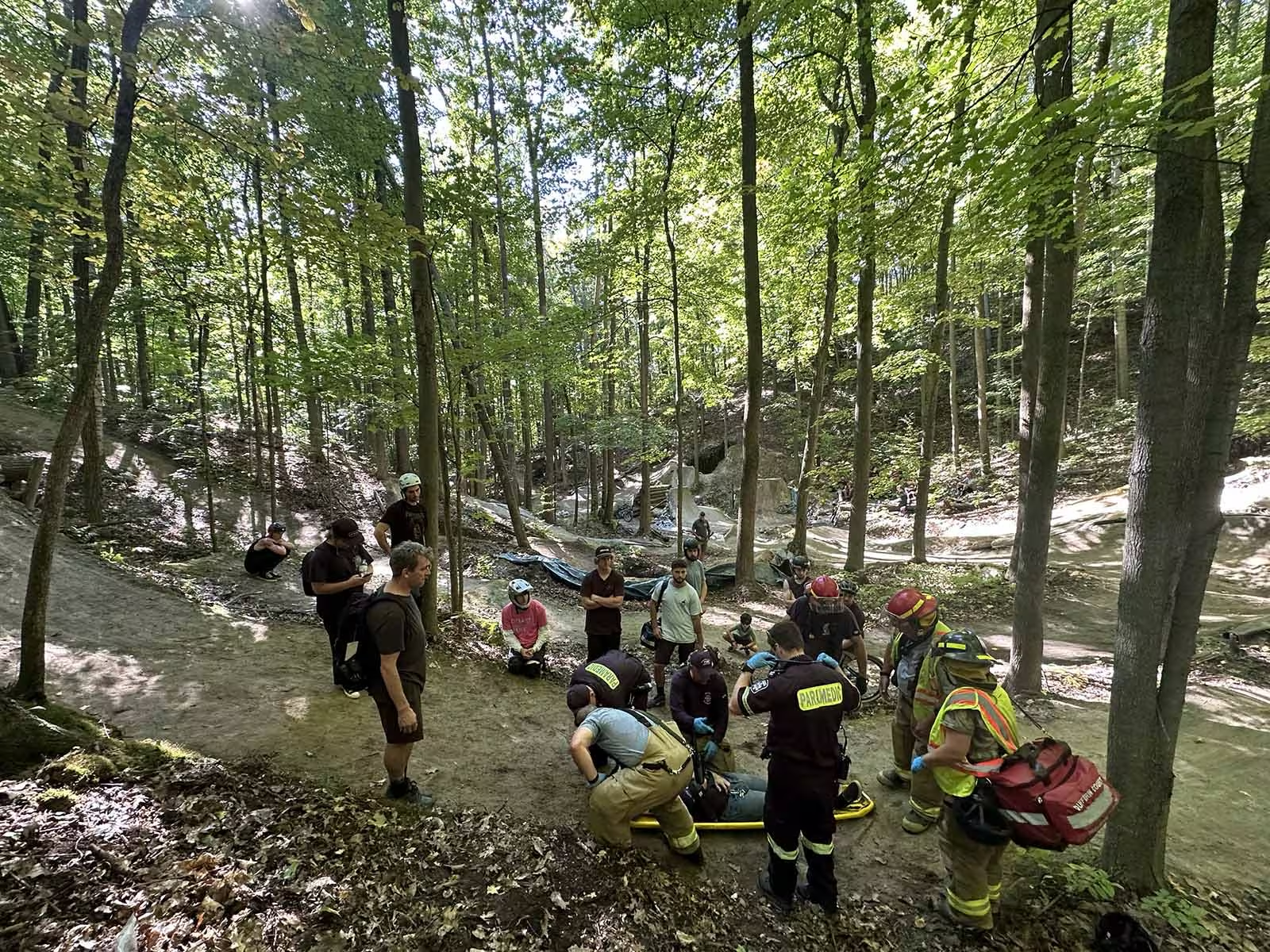At a recent bike event it happened; disaster struck. I didn’t see it, but I heard the crash. A friend went over the bars, landing on his head. I saw the aftermath of the crash as he ragdolled down the hill. His legs spasming when he came to a stop. He was out cold. My other friend ran over to him, and immediately shouted, “he’s bleeding from his mouth!”
We needed emergency first aid. Dealing with this was way beyond my skill set. I instantly felt sick. Sure I’ve done my first aid courses, but that was years ago. I thought to myself, “I better get re-certified.”
Emergency response
Thankfully the crew I was with were highly trained. We had a bike park manager with us. A couple other guys had various levels of first aid skill. We needed to call 911. We were a couple kilometres into the bush.
As one friend called 911, another rode to the highway to help direct the EMS services once they arrived. My injured friend slowly came to. He was disoriented. The blood from his mouth was from a split lip. His hand was bothering him. Before long paramedics and firefighters came hiking through the woods. When they got my friend on a backboard and started hiking him out of the bush. His girlfriend followed the backboard, carrying the extra bike. We were left to ourselves. Stunned. Wondering if we still wanted to ride.
Be prepared
We all know mountain biking has its inherent risks. But this experience showed me I need to be better prepared. I spoke with emergency nurse Pam Paylor about what that looks like.
“First of all, it’s part of game we play at,” she says. “Stay calm, assess what happened. Call out to others to hold up, to standby. How fast were they traveling? What did they hit? How far did they fall, launch, tumble? What is the person doing at first glance? Eating dirt, bleeding, are limbs at an odd angle, are they unconscious? Know how to use your phone app to give an exact trail location if needed.”
We can’t (and won’t) give any practical advice for such a situation, but Paylor says training is key.
“I’m a strong advocate for wilderness first-aid courses,” she says. “They are designed for preparedness out in the field, even going as far as to prepare mock emergency scenes. I’m an emergency room nurse and I found this course invaluable.”
Beyond working as an emergency room nurse, Paylor has dealt with serious injury; her husband Charlie had a major accident two years ago. Charlie wasn’t biking but he…
Click Here to Read the Full Original Article at Canadian Cycling Magazine…

